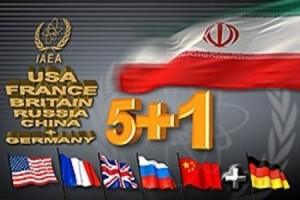
P5+1 Talks with Iran are Substantive and Insightful
By Joshua Miller
On October 15th and 16th, the P5+1 countries convened with Iran in Geneva to lay the grounds and set the tone for negotiations to resolve concerns about Iran’s nuclear program.
After two days of intense and deliberative discussion, both sides deemed the meetings to be substantive and meaningful despite the historical intractability. One American official said “I have never had such intense, detailed, straight-forward, candid conversations with the Iran delegation before.” Moreover, Iranian Foreign Minister Mohammad Javad Zarif stated, “both sides are serious, both sides want to find common ground.”
In fact, the Iranian delegation gave their entire power point presentation and answered some questions at a press conference in English – a subtle indication of seriousness. Catherine Ashton indicated that the P5 + 1 were carefully considering Zarif’s outline that he had proposed as a basis for negotiations.
Despite unprecedented and substantial progression on both sides, many technical and complex issues still remain to be solved. As such, technical experts on both nuclear and sanctions issues will be meeting before the next meeting in Geneva on November 7-8th. Another party that needs to be convinced of the validity of the talks is the US Congress, which is skeptical of Iran’s nuclear program and adamant about Iran not acquiring a nuclear weapon.
Considering the latest actions of President Rouhani and those of Iran’s nuclear program, the skeptics can rest a little more assured. Rouhani is seeking a deal that would see Iran compromise on its enrichment program in return for sanctions relief. Evidence has indicated that Rouhani clearly wants change to some extent, as he stands in the line of fire from his domestic hard-liner counterparts who are uninterested in a deal.
Despite conservative dissension, Rouhani has persevered and has twice publicly suggested that he needs a deal soon – one time suggesting within a three to six months time frame. Rouhani’s window for negotiations and compromise is quickly closing as Iran’s supreme leader Ayatollah Ali Khamaenei and other conservative constituents will lose patience and stymie the talks.
Iran’s nuclear program and its strategy also lend credence to Iran’s seriousness about substantive negotiations. Iran has deliberately refrained from pursuing a nuclear weapon as quickly as it could have – in 2008, Iran achieved 90% weapons grade for one bomb but did not breakout. Similarly, Iran achieved a 3.5% level of purity in 2010 and 19.75% in 2012 but did not convert to weapons grade and breakout.
Furthermore, both President Barack Obama and Israeli Prime Minister Benjamin Netanyahu publicly declared that it would take Iran a year or more to breakout after a decision was made to do so – further assuaging the West’s fears.
There should be no doubt whatsoever that Iran’s nuclear program is military in nature, created to produce weapons, but its behavior for the past five years has suggested otherwise. The motivations as to why the Islamic Republic has refrained from breaking out are less clear, but there are four strong reasons that have deterred Iran from doing so. The threat of an Israeli and American military attack; the fear of American cyber and covert action; the fear that Saudi Arabia would acquire a nuclear weapon; and the fear that China and India would join the Western sanctions against Iran.
Bearing Rouhani’s actions and the reluctance of Iranian breakout in mind, the United States can rest assured in their position a little better than previously thought. The Iranian economy is being crippled by the West’s sanctions, but this should not distort the mindset of the western nations during the negotiations.
The West simply does not know if the agreements settled between both sides will be ultimately signed off by Iran’s supreme leader. But Rouhani embodies the best opportunity we currently possess to get a negotiated settlement to one of the most salient issues in the world today. If he makes the West a decent offer, one that meets our most pressing demands, we should take it — and hope to build a more trusting relationship that can lay the foundation to tackle other troubling problems.








[…] P5+1 Talks with Iran are Substantive and Insightful […]